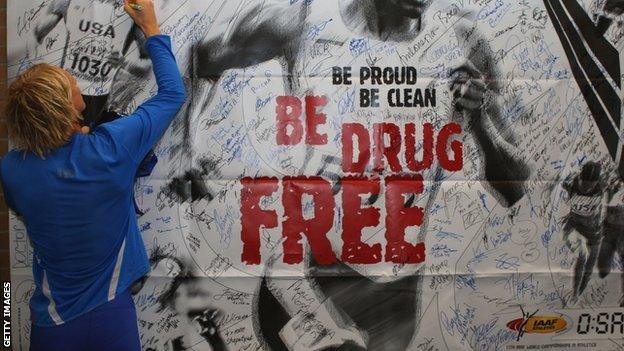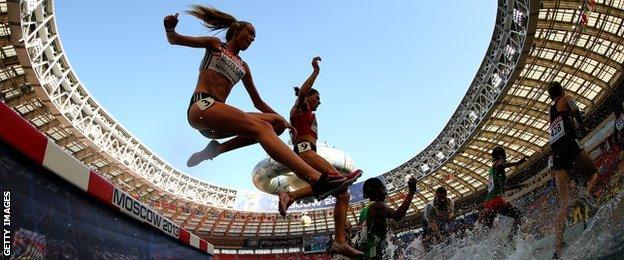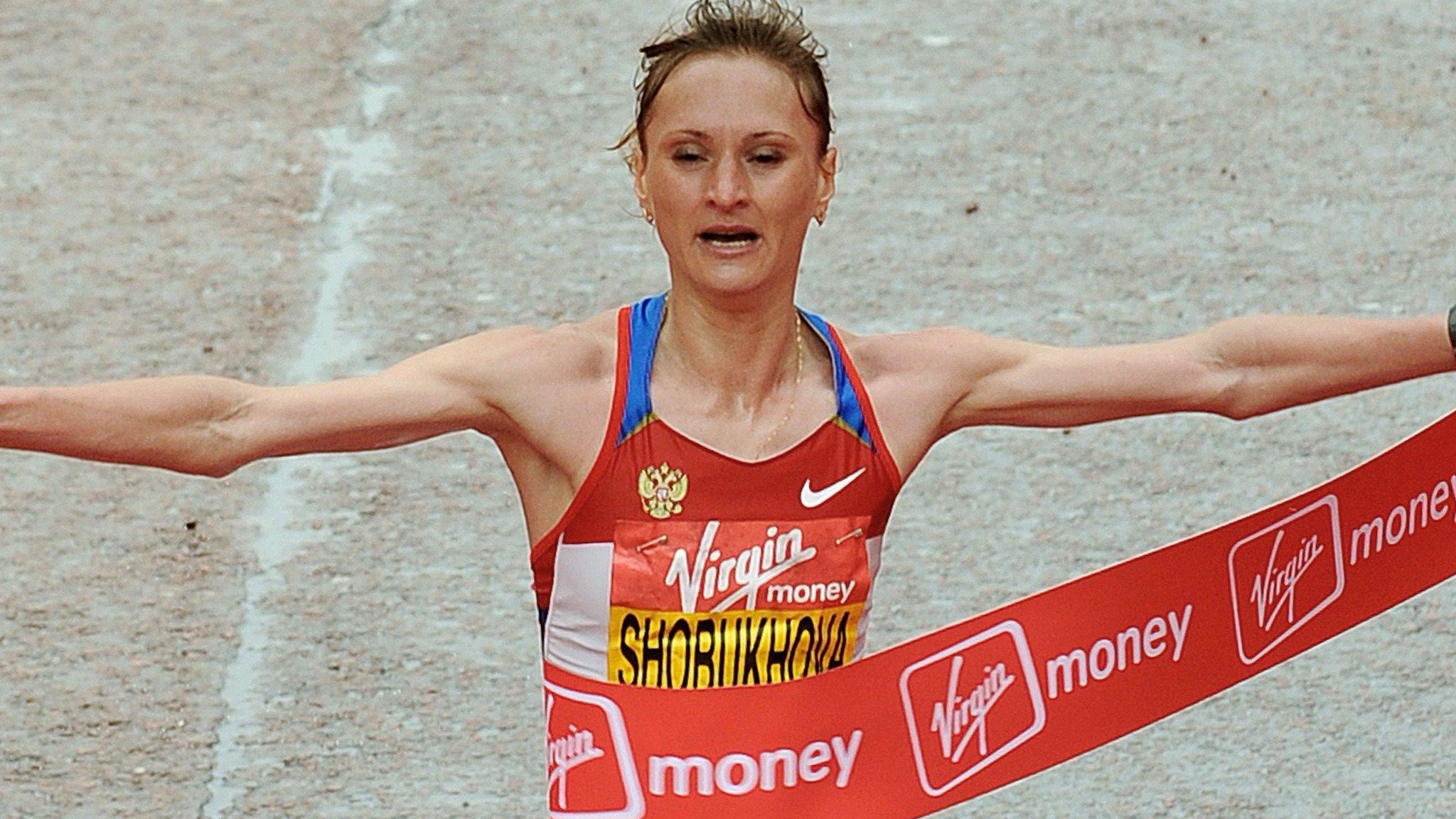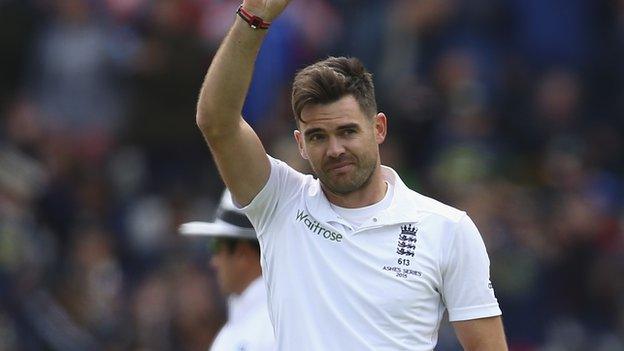Eilish McColgan opens up on blood testing in athletics
- Published

Athletics is facing fresh allegations of suspected doping after a leak of 12,000 blood test results from 5,000 athletes
Scottish middle-distance runner Eilish McColgan is hoping to compete for Great Britain in the 3,000m steeplechase at next year's Rio Olympics.
In the wake of renewed allegations about doping in athletics, she tells BBC Sport about the difficulties faced by clean athletes.
As a professional athlete, I am more than happy to urinate into a cup, roll up my sleeves and allow a stranger to stab at my arm to provide blood - yet I couldn't tell you what the testers are trying to identify in the samples they take.
All athletes who are part of the whereabouts system can access their test results online. I didn't know that. And neither did many of the other athletes I've spoken to since the results of 12,000 blood tests from 5,000 athletes between 2001 and 2012 was leaked to the Sunday Times and German broadcaster ARD/WDR last week.
I suppose as a clean athlete, I've never had to concern myself with the numbers. Maybe the athletes who are doping have a much wider knowledge.
In order to get the situation straight in my own mind, I had a peek at my own blood reports. For all the good it did. I don't possess the knowledge to interpret what is or isn't suspicious from a bewildering array of numbers.
But I want to believe my sport is clean and, as I understand it, these blood values can be spiked or altered with exposure to altitude, altitude tents, pregnancy and illness.

McColgan competed in the London 2012 Olympics in the women's 3,000 metres steeplechase
These are all things athletes are subjected to, so making a decisive judgement on the matter is very challenging. Many people jump to the conclusion that suspicious data equals doping and, although it seems that way, not all abnormal tests will be. And that is where it becomes tricky.
So what about the athletes who have these questionable values?
I think it's difficult to claim that one abnormal blood value is suspicious but perhaps if their values were extraordinarily higher than my own - I would start to question them myself.
Having said that, I am by no means Olympic medal-winning standard, nor do I live the perfect athlete lifestyle, and so perhaps my figures aren't comparable to these Olympic medal-winning athletes.
But I still regularly have to give drug tests in order to pave the way for clean sport. The televised Diamond League meetings that I compete in are plagued by athletes returning from bans, some of whom have made the wrong choice not once, but twice.
More on alleged doping in athletics | |
|---|---|
All sports contain cheats. People want to bypass their way to success and unfortunately drugs are the quickest way to do so. It means suspicion is inevitable.
I fully believe it's possible to win medals clean. I'm extremely fortunate to have my mum - 1991 World Championship 10,000m gold medallist Liz McColgan - as a clear example of that.
Her training diaries are concrete proof of the hard work and sacrifices she made in order to win major titles.
Winning clean is possible - it's just made a lot more difficult, against opposition willing to take the easy route.
From a young age the word 'drugs' didn't mean much to me other than 'say no'. Perhaps a little naive on my behalf, but the situation never occurred. However, the word has manifested its way into my life and started to overshadow the sport I love.
Now I fear that this data being leaked may give the dopers and their doctors the opportunity to make sure they never breach the boundaries again nor raise the alarm of suspicion.
I truly believe the GB team heading to the World Championships later this month are clean and I hope the public can support them.
But the same testing procedure is not equal from nation to nation and that is where our main problem lies. Something needs to be done to make sure all countries are singing from the same hymn sheet before we reach the point of no return.
- Published9 August 2015
- Published9 August 2015

- Published9 August 2015

- Published10 September 2015

- Published8 February 2019
